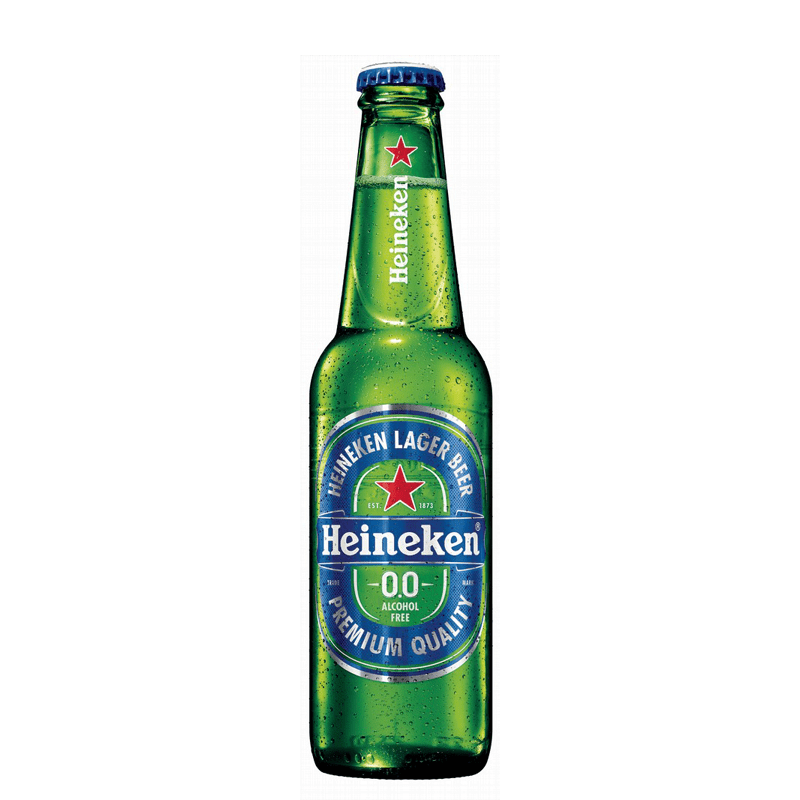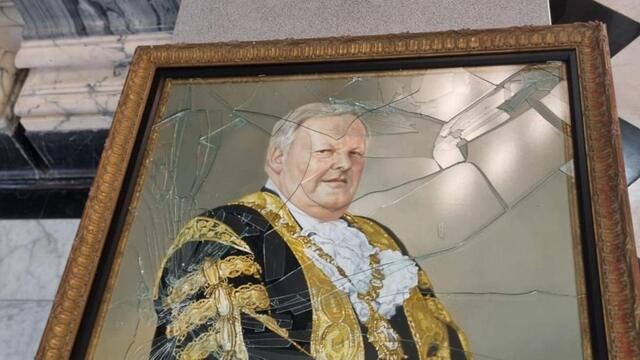SQUINTER has stopped drinking. Regular readers of this column will know that the Roddy’s looms large in Squinter’s life story, and one or two may even find themselves shocked that the spell that sport and beer have over Squinter has been broken – even if its permanence is yet to be confirmed.
Six months ago at the weekend it was that Squinter had his last beer (he can count the amount of shorts he has drunk in his life on the fingers of one hand). No, wait. Since this piece is all about painful honesty, let’s be completely up-front here. On his first holiday after deciding to ‘take a break’ he had one of those tiny cans of Heineken on the plane handful of pints on the first few days on arrival. But such was his reluctance to get up the next morning with a hangover that he quickly reverted to the old Heineken 0.0 – and stayed on it. And on Christmas morning he was handed a ‘Baby Guinness’ (Baileys and Tia Maria in a shot glass prepared to look like a mini pint of stout). He necked that out of politeness (first one he’d ever had, by the way) but other than that he spent Christmas on the wagon.
Squinter highlights these two events because it was these that convinced him – and the people around him – that jacking in the amber nectar was a realistic proposition. That week in Croatia at the start of Squinter’s sober new life in August was a crunch period. A cold lager at a pavement café is what holidays in the sun are all about, right? And who the hell can have a holiday in the sun without a beer at the bar on exiting the pool? How is a bloke supposed to enjoy the sun going down over the Adriatic with a cup of that awful tea you get in Europe involving a teabag on a string?
Six months ago this weekend I took a few days break from the aul’ drink and haven’t touched it since. Biggest side-effect? A hitherto non-existent sweet tooth. ‘Parntly it’s the No.1 side-effect. I’ve lost a stone; if it wasn’t for buns with tea I’d need a new wardrobe.
— Squinter (@squinteratn) January 20, 2024
And sure enough, the temptation was real. Planted in the shade under a café umbrella in the early afternoon of the first day, Squinter ordered a real beer, but instead of getting wired into it with the relief of a man spared a life of teetotal drudgery, Squinter sat over it, sipping oh-so slowly and eyeing the pint glass almost with a degree of suspicion. Those of you familiar with the technical and biological intricacies of alcohol consumption will know that the worst hangovers are the ones you get when you’ve been off the drink for a while, and Squinter knew that if he went straight into his usual daily holiday consumption after a lengthy break he’d die a thousand deaths the next morning. And so back to the 0.0 it was.
The next day, emboldened by the pint of the day before, Squinter had two in the space of three or four hours and another before he retired for the night. And while the next morning an ambulance wasn’t summoned, the vague headache, the cotton wool mouth and the missed morning swim meant that the small rebellion was put down.
And spending the rest of the time abroad on the alcohol-free beer convinced Squinter that the big test to come – the festive season – could be successfully negotiated, as it was. Apart, as we now know, from that Christmas morning fancy shot.
The old zero lager has been absolutely key. Like most beer enthusiasts of his acquaintance, Squinter once viewed alcohol-free beer with an odd odd mix of contempt and suspicion; pretty much the same attitude previously reserved for pre-sliced Veda, mild cheddar and low-fat sausages. But while it lacks the bite of full-fat beer, it’s not half-bad when it’s nice and cold and – crucially – the green bottle lubricates the social friction that arises when a lifelong devotee of the hop decides to stop.
Sometimes it’s Heineken, sometimes it’s Peroni, mostly in bottles but just occasionally in pints. The odd thing is that it’s the same price as the real beer, which Squinter found odd until he Googled it and found out that exactly the same process and ingredients go into the brewing of a near-beer. And in another blow to Squinter’s righteous indignation, turns out it can actually cost more to make because in some of the better quality zero alcohol beers the 0.0 product is normal beer from which the alcohol has been extracted.
Which brings us to the question of the government alcohol duty, which must remain a gripe for another day. Why’s there a booze tax on beer that contains no booze? Government reluctance to lose income, no doubt, but wouldn’t the concomitant rise in designated drivers brought about by the increased popularity of alcohol-free drinks lower the rate of death and injury from drunk-drivers – and wouldn’t encouraging that rise by making zero per cent alcohol cheaper be a good investment.
And it’s at this point – when Squinter starts to sound like the kind of know-it-all, holier-than-thou bore that gives teetotallers a bad name – that it’s time to bring this week’s lecture/column to a close with words from an anonymous commentator that nicely chime with Squinter’s current position: “There’s no point trying to drown my troubles and my sorrows any more – the bastards have learned to swim.”







